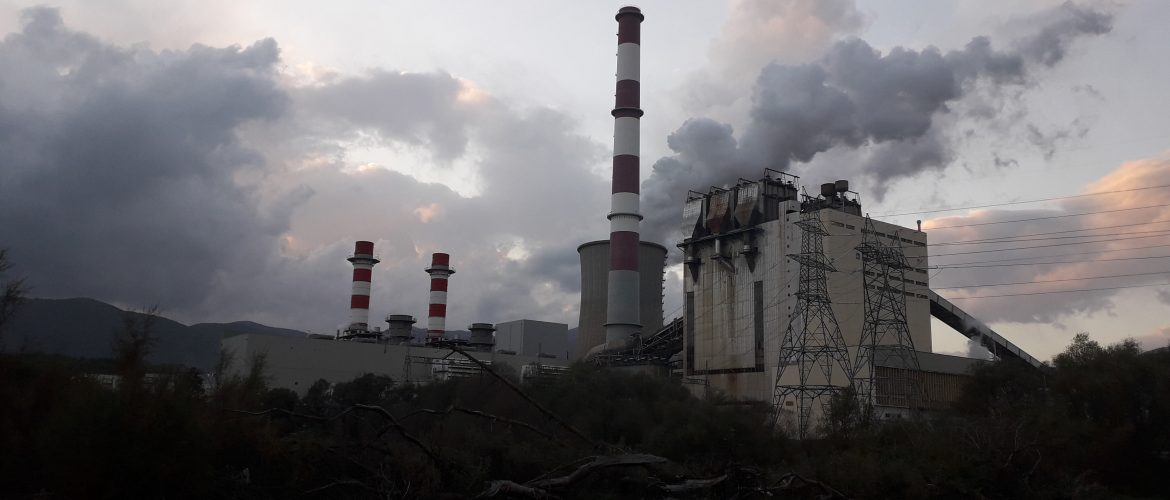Statement by Nikos Mantzaris in the article by Ilias Tsagas in pv magazine regarding the decision of the Ministry of Environment and Energy to allow lignite plants to operate in derogation beyond their planned retirement and exceeding EU emission limits.
The article was published in pv magazine on December 31, 2021 with the title:
Greece’s coal phase out enters shaky ground
The full article follows.
A row between the Greek ministry of the environment and energy, the country’s electricity utility, and a journalist has shown that Greece still has pro-lignite voices in key posts and that the government must move quickly if it wants to realize its coal phase-out plans.
Greece’s government announced in September 2019 that it aims to phase coal out of its electricity mix by 2028 at the latest.
Two months later, in December, the government published the country’s National Energy and Climate Plan which detailed ambitious renewable energy installation targets.
The new plan provided a detailed timeframe for the “shutdown of lignite-fired plants that are currently in operation, which is to be completed by the end of 2023.”
With this wording, “currently in operation,” the government was not considering Ptolemaida 5, a new power plant under construction in Greece’s Western Macedonia prefecture.
Then this May, it appeared the issue of Ptolemaida 5 appeared resolved, with pv magazine reporting that state-owned utility had announced a decision to operate the plant using an alternative technology starting in 2025.
Thus, it seemed clear Greece was holding true to its plan of shutting down all operational lignite-powered plans by 2023, with two plants ceasing operation in 2021. The date for phasing out coal was shifted to 2025, due to the conversion of Ptolemaida 5.
Nikos Mantzaris, a senior policy analyst at Athens-based thinktank The Green Tank, confirmed pv magazine’s analysis, adding one more crucial fact: at COP26, where Greece’s prime minister Kyriakos Mitsotakis and minister of the environment and energy Kostas Skrekas reiterated that all operational coal plants would shut down in 2023; however, they said Ptolemaida 5 had until 2028 to switch to a new fuel, rather than 2025.
December 2021: The pushback
These timeframes have now been jeopardized this week by Greece’s ministry of the environment and energy (Ypen). Indeed, on Tuesday, Ypen published its decision to allow four operational lignite-powered plants to continue operations until the end of 2025. Another three lignite-powered plants have been permitted to operate for additional hours until the end of 2023. And, two oil-powered plants on the island of Crete have had their operational cycles extended to the end of 2024.
The latest developments are a clear setback from the country’s recent climate policy successes and run against the European Union’s policy mandates.
Following the publication of the updated timelines, Greece’s daily newspaper Kathimerini reported the news on Wednesday, stating that the ministry has accepted calls by state-owned utility PPC to extend the cycle of the nine power plants.
The PPC reacted: Within a couple of hours, the utility had published a very brief yet crystal clear statement saying that it only has one working plan which was the phasing out of all operational coal plants by 2023 and finding an alternative fuel for the Ptolemaida 5 plant from 2025.
Mantzaris told pv magazine: “Apparently there are still several voices trying to resurrect lignite in Greece. However, PPC’s firm and frequently re-iterated decision to abandon the most polluting fuel on the planet as soon as possible, in conjunction with the escalating CO2 prices guarantee that all existing lignite plants will shut down by 2023, while Ptolemaida 5 will cease burning lignite by 2025 at the latest.
“Nonetheless, the government still needs to ‘clear the air’ and reaffirm its commitment to this phase-out plan during the revision of the National Energy and Climate Plan.”
Next steps
Sources at the energy ministry told pv magazine this summer that the ministry is preparing a new National Energy and Climate Plan, increasing the role of renewable energies, energy storage, and power interconnections in Greece’s energy system and market.
However, the policy framework for energy storage has been delayed and a tender for energy storage facilities has been pushed from the last quarter of this year back to the coming year.
On the interconnections front, the government has made some ambitious steps linking Crete to the mainland and initiating the interconnection of the country with Egypt, Cyprus, and Israel although linking Greece to its neighboring countries may take longer than 2025 to materialize.
Meanwhile, Greece was battered by a prolonged heatwave in the summer and extended wildfires which stretched the country’s energy system to its limits. To face the skyrocketing demand for power – mainly due to air conditioning – Greece utilized lignite-powered plants and asked its citizens to be energy savvy.
It appears that some figures are trying to exploit this situation, adding to the debate that the spiraling of the current wholesale electricity market prices in Europe indicates coal is a necessary tool to flatten power prices.
The government must resist such arguments. Greece’s policy shift to phasing coal out, which the present government adopted in 2019 and has boosted since then, was the result of a policy ecosystem pushing the debate forward. It was also the result of the PPC nearing bankruptcy due to its outdated portfolio and old business strategy.
The new PPC management understands that new technologies and a modern strategy are key to the firm’s survival. The Greek government seems to understand this too; however, policy decisions to extend the operation cycle of coal power plants crack the newly established decarbonization debate and endanger the recent progress been made.
Instead of this week’s setback, the government needs to step up energy storage development and the utilization of renewable energies that provide it with cheap power, independent of fuel price fluctuations and emissions costs.



















































































































































































































































































































